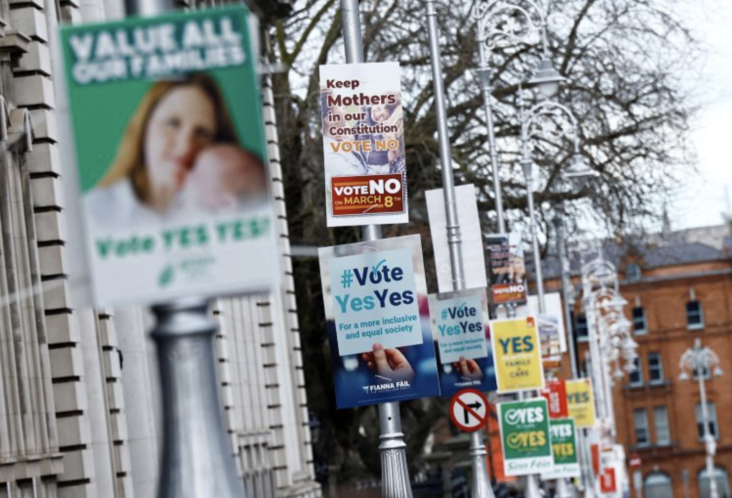
Prime Minister Leo Varadkar says proposed constitutional amendments a chance to delete ‘very old-fashioned, very sexist language about women’.

In 1995, Irish voters legalised divorce in a referendum. Twenty years later, they backed same-sex marriage, and in 2018, they repealed a ban on abortions.
“A woman’s place is wherever she wants it to be, and nothing less is acceptable in our constitution,” Orla O’Connor, director of Ireland’s National Women’s Council said on Wednesday while canvassing for a “yes” vote in central Dublin.
All the major political parties back the changes in Friday’s votes with recent opinion polls predicting a smooth passage for both proposals.
Turnout in focus
However, a low-profile campaign before the votes has not appeared to engage the electorate and could see a low turnout. In the past, low turnouts have boosted the proportion of people voting for the status quo.
“No” campaigners argue the concept of “durable relationship” is undefined and confuses voters and that women and mothers are being “cancelled” from the constitution.
.
Disability rights activists have also argued that the care amendment appears to portray disabled people as a burden on families with the state abdicating its role in providing care.
“I am confident that the sexist, harmful language of Article 41.2 will, in the future, be fixed,” Professor Siobhan Mullally, director of the Irish Centre for Human Rights at the University of Galway’s School of Law, told the Reuters news agency.
“I am not so confident, however, that a future government will fix our continuing failure to commit to supporting the public good of care work – in families and communities.”



